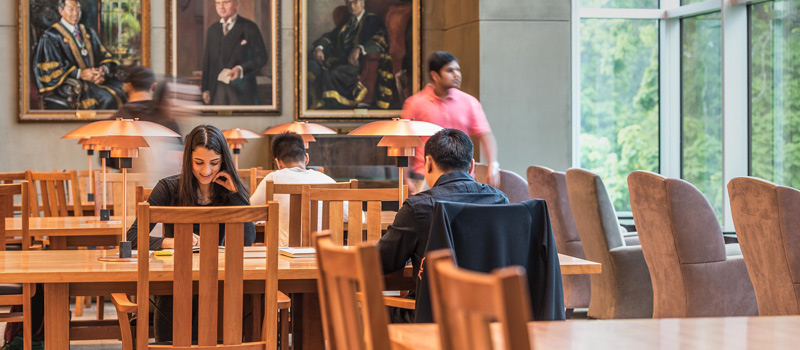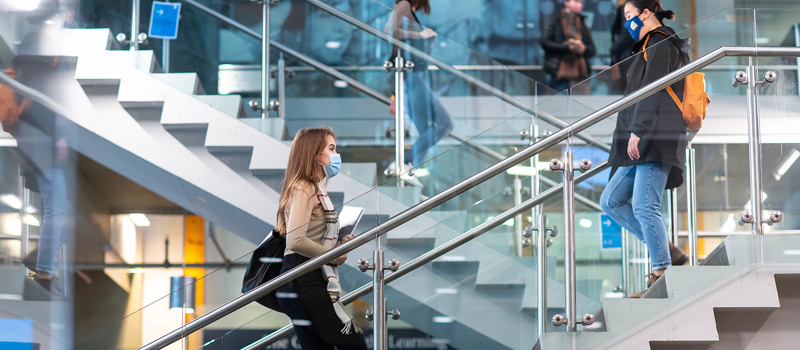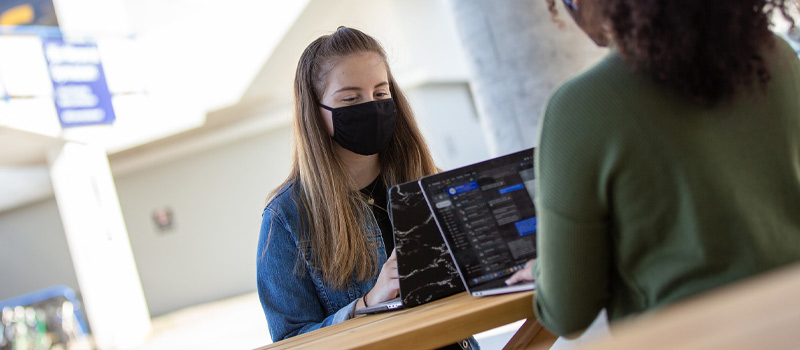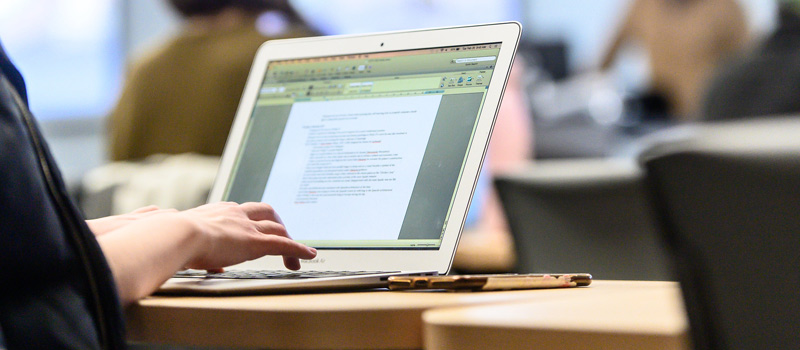Collaborative Learning and Group Work
Group work is great at the right time and place.
Collaboration is beneficial for learning and an important workplace skill. However, to avoid instances of unauthorized collaboration, it is important for instructors and students to have clarity on the exact nature of collaboration that is permitted for each assignment.
Types of collaboration allowed will vary among courses, so instructors need to make it clear whether behaviours such as working together on homework, providing peer feedback on essays, or working together on a lab report or coding assignment are permitted. Students need to know what types of collaboration are permitted in each course and ask if they do not understand.
Things to reflect on
What are the goals for collaborative learning?
What skills do students need to better help them to learn collaboratively with integrity?
What supports help students learn collaboratively with integrity?
Effective Collaboration
Group work can be complex and there is an important distinction between effective collaboration and inappropriate group work. If work is intended to be independent, complete your work individually unless your instructor has told you explicitly that it is ok to work in groups. Working together may also increase the chances of the submissions being too similar and potentially suspected for academic misconduct. When working together in groups, consider the following suggestions.

Make it meaningful
Collaboration via group work is beneficial when tasks are challenging and require input from more than one person to complete.
Tasks that are authentic and promote meaningful engagement with the course content are motivational and inspire learning with integrity.

Make it clear
Both instructors and students have a responsibility to ensure expectations and objectives for collaborative learning are clearly communicated and understood.
Clarity will help students avoid collusion, which is when a student helps another engage in academic misconduct. Depending on the assignment, collusion may involve using another student’s work as a guide or submitting their work as your own.

Make it reciprocal
Acknowledge what everyone brings to the collaborative learning setting and share knowledge in a respectful way.
Learning collaboratively with integrity means doing one’s part and acknowledging the contributions of others.
Challenges
Working in groups also has its challenges and shortcomings. Effective team work requires all group members to communicate and contribute equally. It is also the responsibility of the group to ensure that academic integrity is upheld within the group. Make sure you ask your instructor or teaching assistant for guidance if any members of the group are unclear about what constitutes appropriate collaboration.

Unequal contributions
Peer evaluation at the mid-point and the end of the project is helpful both for accountability and learning from feedback. Documenting everyone’s contributions is important. Group agreements make expectations clear.
Start by agreeing as a group that everyone’s expectations are clear. Assign roles and responsibilities so that everybody can contribute. Finally, use compassion and care and accept that everyone is doing their best with the circumstances they have.

Communication
Effective groups require effective communication.
Ensure everyone knows how and when communication is expected. Reach out to group members who seem to be disengaged and invite them in. If required, talk to your instructor for guidance when communication within the team seems unproductive.

Teamwork is a learned skill
Working effectively in a team is a skill students will develop over time when instructors provide opportunities for them to practice and overcome challenges.
This development can be supported by offering feedback and encouraging reflection. For example, instructors could ask students to submit a reflection about how their group worked together and what they learned from working together.
References
- University of Manitoba: Student Advocacy, Inappropriate Collaboration
- Velliaris, D. M. “A clearer pathway to institutionalising academic integrity: Distinguishing between collaboration and collusion.” 26th International Education Association (ISANA) Conference (Pullman on the Park, Melbourne, Australia, 2015).


